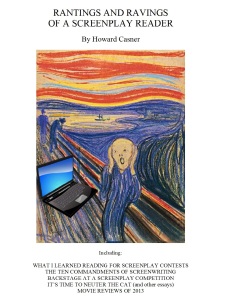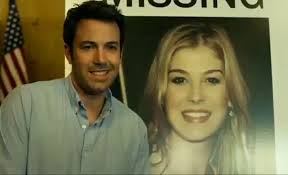IF I HAD A HAMMER: Movie Reviews of Thor: Ragnorak and Justice League by Howard Casner
Posted: December 9, 2017 | Author: Donald | Filed under: Uncategorized | Tags: Ben Affleck, Cate Blanchett, Chris Hemsworth, Chris Terrie, Craig Kyle Christopher Yost, Eric Pearson, Gal Gadot, Henry Cahill, Jason Mamoa, Jeff Goldblum, Josh Whedon, Justice League, Rachel House, Ray Fisher. Jeremy Irons, Taiko Waititi, Thor: Ragnorak, Zach Snyder | 211 Comments » For questions: hcasner@aol.com
For questions: hcasner@aol.com
First, a word from our sponsors: I am now offering a new service: so much emphasis has been given lately to the importance of the opening of your screenplay, I now offer coverage for the first twenty pages at the cost of $20.00. For those who don’t want to have full coverage on their screenplay at this time, but want to know how well their script is working with the opening pages, this is perfect for you. I’ll help you not lose the reader on page one.
Ever wonder what a reader for a contest or agency thinks when he reads your screenplay? Check out my new e-book published on Amazon: Rantings and Ravings of a Screenplay Reader, including my series of essays, What I Learned Reading for Contests This Year, and my film reviews of 2013. Only $2.99. http://ow.ly/xN31r
and check out my Script Consultation Services: http://ow.ly/HPxKE
Warning: SPOILERS
 When I was young, I tended to not favor DC Comics, but gravitated toward those of the Marvel variety. This is because as a barefoot boy with cheek I never really fit in, was an outsider, so I found the Marvel universe, with its conflicted superheroes and conflicted supervillains, to be more reflective as life as I saw it.
When I was young, I tended to not favor DC Comics, but gravitated toward those of the Marvel variety. This is because as a barefoot boy with cheek I never really fit in, was an outsider, so I found the Marvel universe, with its conflicted superheroes and conflicted supervillains, to be more reflective as life as I saw it.
Spiderman was especially someone I could identify with and why Spider-Man: Homecoming is the best Spidey film because it most closely mirrored what my life at school was like.
This approach, which often drives the movies based on Marvel characters, is why I have usually found these films, even the subpar ones, better than the DC ones, with a couple of exceptions (The Dark Knight Rises).
MANLY MEN: Movie Reviews of The Finest Hours and Mojave by Howard Casner
Posted: February 2, 2016 | Author: Donald | Filed under: Uncategorized | Tags: Ben Affleck, Ben Cross, Carter Burwell, Chris Pines, Craig Gillespie, Eric Bana, Eric Johnson, Garrett Hudland, Holiday Grainger, Mark Wahlberg, Mojave, Paul Tamasy, Scott Silver, The Finest Hours, Walter Goggins, William Monahan | 9,039 Comments »First, a word from our sponsors: I am now offering a new service: so much emphasis has been given lately to the importance of the opening of your screenplay, I now offer coverage for the first twenty pages at the cost of $20.00. For those who don’t want to have full coverage on their screenplay at this time, but want to know how well their script is working with the opening pages, this is perfect for you. I’ll help you not lose the reader on page one.
Ever wonder what a reader for a contest or agency thinks when he reads your screenplay? Check out my new e-book published on Amazon: Rantings and Ravings of a Screenplay Reader, including my series of essays, What I Learned Reading for Contests This Year, and my film reviews of 2013. Only $2.99. http://ow.ly/xN31r
and check out my Script Consultation Services: http://ow.ly/HPxKE
Warning: SPOILERS
 The story of The Finest Hours, based on a true one the screen tells us, takes place in 1951, which is probably apropos since whatever else the movie is, it’s certainly good old fashion entertainment.
The story of The Finest Hours, based on a true one the screen tells us, takes place in 1951, which is probably apropos since whatever else the movie is, it’s certainly good old fashion entertainment.
It’s a movie in which men have to do what men have to do and their strong independent minded women also serve by sitting and waiting. It’s a movie that if it were done in odorama or smellovision, testosterone would be the fragrance of choice. It’s a movie so Howard Hawksian, you can’t help but wonder what that great director might have achieved with state of the art CGI.
But perhaps most important than all of that is that The Finest Hours is rollicking, edge of your seat fun. Yes, it’s formulaic and predictable (you can see the tropes coming a mile, or knot, off), but here it’s so well done, with such sincerity and heart, that the familiarity just makes it more enjoyable. And if that’s not enough, it has enough chills, thrills and nail biting suspense for ten movies.
The basic premise revolves around what is considered the most daring and dangerous rescue mission in Cast Guard history. During a massive storm, a tanker is split in two. The half with the captain goes down, but the other half, which has more ballast, is still afloat…for now. While the crew on the tanker try to figure out what to do (they settle on a plan to find a shoal and run the ship aground), on shore a Coast Guard cutter is assigned to look for the tanker—what many see as a suicide mission.
BITCH, BITCH, BITCH: Movie review of Gone Girl by Howard Casner
Posted: October 12, 2014 | Author: Donald | Filed under: Uncategorized | Tags: Ben Affleck, Carrie Coon, David Fincher, Gillian Flynn, Gone Girl, Kim Dickens, Neil Patrick Harris, Patrick Fugit, Rosamund Pike, Scoot McNairy, Tyler Perry | 1,545 Comments » First, a word from our sponsors. Ever wonder what a reader for a contest or agency thinks when he reads your screenplay? Check out my new e-book published on Amazon: Rantings and Ravings of a Screenplay Reader, including my series of essays, What I Learned Reading for Contests This Year, and my film reviews of 2013. Only $2.99. http://ow.ly/xN31r
First, a word from our sponsors. Ever wonder what a reader for a contest or agency thinks when he reads your screenplay? Check out my new e-book published on Amazon: Rantings and Ravings of a Screenplay Reader, including my series of essays, What I Learned Reading for Contests This Year, and my film reviews of 2013. Only $2.99. http://ow.ly/xN31r
Warning: SPOILERS
 Amy Dunne, the heroine of the new Gillian Flynn/David Fincher thriller Gone Girl, is the latest in a long line of movie heroines.
Amy Dunne, the heroine of the new Gillian Flynn/David Fincher thriller Gone Girl, is the latest in a long line of movie heroines.
Well, that’s not true. I don’t think the line is that long. It sort of vaguely dates from around the 1970’s.
It began somewhere around the mid of that decade with Nurse Ratched in One Flew Over the Cuckoo’s Nest and continued on with Diana Christensen in Network; Alex Forrest in Fatal Attraction; Annie Wilkes in Misery; Carolyn Burnham in American Beauty; Debbie in Knocked Up (and similar comedies); and many, many, many, many others. Many.
Yes, Amy Dunne comes from a long line of cinematic bitches. However, we may have now reached a new peak in Hollywoodland. Ms. Dunne has the dubious distinction of possibly being the Queen Bitch of all filmdom.
No, I’m going to correct that. Using the language of the movie, she is not the Queen Bitch of all Queen Bitches. She is the Queen Cunt of all Queen Bitches. She is one step up from bitch. Read the rest of this entry »
Movie Reviews of ARGO and SEVEN PSYCHOPATHS by Howard Casner
Posted: October 16, 2012 | Author: Donald | Filed under: Uncategorized | Tags: Alan Arkin, Argo, Ben Affleck, Bryan Cranston, Chris Terrio, Christopher Walken, Collin Ferrell, John Goodman, Martin McDonagh, Sam Rockwell, Seven Psychopaths, Victor Garber, Woody Harrelson | 4,820 Comments »Argo, the new thriller written by Chris Terrio and directed by Ben Affleck, has been described as one of those throw back Hollywood studio movies, one that isn’t based on a franchise or comic book, but is instead a solid, well written, professionally made piece of entertainment aimed at adults. And this is a very accurate description. But at the same time, this also means that it reduces a terrifying and important and politically complex situation to a routine thriller; has jokes that are as old as the Hollywood Hills (though I seemed to be the only one that laughed at the screenwriting/free meal punch line); and has character arcs and plot turns that are obvious and formulaic and have everything but subtlety (and the kitchen sink, I suppose).
But does any of this matter? Does anyone care? It doesn’t seem so. Mainly because it is also highly, if not, incredibly entertaining for the most part (or enough part to make it work very well on its own terms). Indeed, the approach may reduce the circumstances to a Casablanca like simplification, but it doesn’t ignore the historical reality altogether (and gives it more attention and depth than expected). The jokes may be stale, but they are still funny and delivered with the timing of pros. The plotting may be predictable, but it still keeps you on the edge of your seat. And the character arcs may be formulaic, but they still bring a tear to the eye.
So I suppose the conclusion is: go for the entertainment, but leave your aesthetic at the door.
The story revolves around a group of American embassy workers who manage to get out a back door and take refuge in the Canadian ambassador’s home during the 1979 Iran hostage crisis. To rescue these six people before the Iranian government finds them (and most likely would kill them), a CIA agent, Tony Mendez, is assigned to rescue them and he does so by coming up with the “best, worst idea” they have: Mendez will pretend to be a Canadian movie producer scouting locations in Iran and then take the six out with him pretending that they are part of his crew.
There’s nothing that wrong with the movie. It more than gets the job done. And it has some wonderful aspects to it, especially in some of the supporting roles. Alan Arkin plays a once big movie producer now reduced to accepting life time achievement awards and he plays his part as if it’s the role of his life (he may be as old as the jokes, but he makes them zing as if they’ve never been told before). John Goodman solidifies his career as one of our most enjoyable supporting actors as John Chambers, a make up artist who won an Oscar for the original Planet of the Apes movie. Victor Garber takes a nothing role as the Canadian Ambassador and fills it with such humanity, one wants to give him the Nobel Peace Prize. And there’s a scene at the end where the annoying Doubting Thomas/Debbie Downer character, who had bad talked the mission the whole way, fulfills his arc by suddenly becoming more invested in his playacting than the others, describing the fake movie they are not shooting to some Iranian guards as if he was pitching the project that could make or break him (which it could, I suppose).
At the same time, as fun as it is, one does wish it could have been better. The rest of the cast is filled with a bunch of TV actors as if the producers were hoping that casting them alone would cover up a certain flatness in most of the roles (it doesn’t, though, as hard as people like Bryan Cranston try). The second act drags a bit, and though the third act is exciting, it is also a bit over the top (so over the top, it’s obvious it didn’t quite happen this way—and it didn’t—the most suspense the real participants had at the airport was a ticket agent who suddenly disappeared for no reason for ten minutes, only to return with a cup of tea) and relies on the authorities turning into a bunch of Keystone Revolutionary Guards (one wanted to shout to them, “Just call the tower, you idiots”).
And then there’s Ben Affleck. Many, including yours truly, were relieved when he became a director. He wasn’t doing anything that interesting from an acting standpoint and his career seemed to stall. Then he gave us Gone, Baby, Gone and he was back with a vengeance. Since then, he has become a more than competent director. Unfortunately, he’s also gone back to acting and keeps putting himself in the lead in his films. There’s nothing wrong with his performance here, but like most of the supporting ones, he can do little with breathing real life into the role and I just kept thinking how much more interesting the film might have been if someone with more screen presence, like Jeremy Renner or Ryan Gosling or Michael Fassbender, had been in the lead.
But then I saw the movie Seven Psychopaths (the second feature by writer/director Martin McDonagh, who gave us the deliriously wonderful In Bruges in 2008) the same day as Argo and what a study in contrasts.
Where Argo was made with a studio finesse, …Psychopaths is a shaggy dog of a story; where Argo is the perfect movie to study for formula with all I’s dotted and tittles crossed, …Psychopaths feels made up as it goes along; where Argo is filled with a supporting cast of actors that seem to be used to cover up a lack of depth in the characters, …Psychopaths has one of the most impressively written ensembles inhabited by perhaps the best and most exciting cast of the year (even when it comes to using TV actors, Argo comes up with Kyle Chandler of Friday Night Lights where …Psychopaths uses Boardwalk Empire’s Michaels’ Stuhlbarg and Pitt); where Argo feels like the poster child of how-to screenplay books and college classes, …Psychopaths seems to revel in saying “fuck you” (and not just implicitly, but also explicitly over and over again in the screenplay) to anyone who thinks one should write according to the rules; and where Argo feels satisfied to be what it is, a well made thriller, …Psychopaths feels infused with the passion and a desire to really do something personal.
So whereas Argo is fun and extremely entertaining (and you will not be disappointed if you see it), Seven Psychopaths is something else: a wonderful, witty, perhaps brilliant rag tag of a movie that does nothing you expect and surprises you in ways that very few movies do.
The basic story line revolves around Marty, a screenwriter who is blocked, (Collin Ferrell, who along with Renner, et al., would probably also have been a better choice for the lead in Argo) and his best friend Billy (Sam Rockwell, in perhaps his finest performance to date), who makes a living kidnapping dogs with his friend Hans (a heartbreaking Christopher Walken). All Marty has for his opus is the title, Seven Psychopaths, but nothing else. But in working out his storyline, he finds himself caught up in Billy and Hans’ world, especially after they abduct a dog from the sociopathic mobster Charlie (Woody Harrelson, who seems to be having more and more fun the further he gets away from the role that first made his name, that of obtuse, country boy Woody in the TV series Cheers). Let’s just say that chaos, violence and hilarity ensue.
McDonagh does some remarkable things in Seven Psychopaths. The story is ridiculous. It’s almost never believable. It’s so over the top, it makes Scarface look like Little Lord Fauntleroy. But the more preposterous the movie becomes, the more caught up you are in the whole stupid, insane mess. And just when you don’t think it can get any more outrageous, McDonagh pulls a rabbit out of his hat (both figuratively and literally) and doesn’t just go one level higher, he makes a tiny adjustment and suddenly you’re so emotionally caught up in the whole thing, you find yourself on the verge of tears. No matter how far from reality the story gets, there’s something so real at the core, that the emotions at times sweep over you in ways that never make any sense, but yet, there they are. How does he do it? I don’t know. But there’s no point in fighting it; resistance is futile.
In the end, though I think Seven Psychopaths is a far superior movie to Argo, I think both represent what I wish movies would be. If you’re going to do a studio driven, formulaic movie that doesn’t try to be anything more than what it is, at least make them as entertaining and intelligent and enjoyable as Argo. But if you’re going to write something personal, if you’re going to revel in being independent and taking movies in a new and unique direction, then movies like Seven Psychopaths are indispensable. Argo is the future of the studios. Seven Psychopaths is the future of filmmaking.











